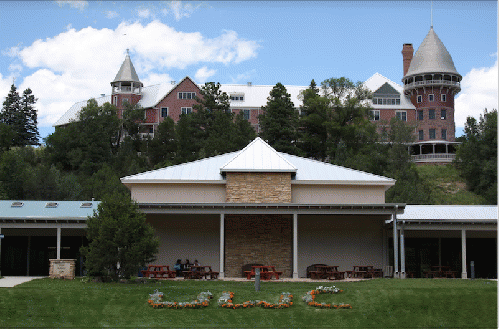As I read the news that the U.S. Supreme Court on Monday allowed the third version of President Donald Trump's ban on travelers from six majority Muslim countries, North Korea and Venezuela to stand while legal challenges continue, it occurred to me how easy it is to become complacent.
Earlier this year, in my capacity as president of the United World College-USA, the only United States campus of a 17-campus, worldwide educational movement in the service of global understanding, peace and sustainability, I spoke out immediately about the wrongheadedness of President Trump's original version of the ban. I didn't speak out from the standpoint of our constitutionally based commitment to freedom of religion. I didn't call out the role immigrants have played in our history. I didn't engage the issue from a partisan perspective, believing against much evidence to the contrary that we can still be guided by the idea that there is such a thing as the common good. I spoke out from a purely pragmatic standpoint, in agreement with the premise that security must be one of the chief concerns of leadership.
To ban from entry to this country people who wish to escape extremism, who believe their cultural traditions are compatible with this brilliant experiment in a diverse democracy, who wish to study and to learn together with others whose views are surely different from their own, is shortsighted. Worse, it is counterproductive.
Fundamental distinctions between those who would do us harm and those who are looking to learn with and from us must be maintained. The scourge presented by extremism of all kinds loses traction under the critical scrutiny that comes with education. Have we given up on the power of education to shape hearts and minds? To bridge differences through discovery of common ground? To work together on seemingly intractable problems of concern to all human beings?
Any travel ban that doesn't go out of its way to promote educational exchange (granted, there are some concessions in the third version) misses its mark on security, even more so on the possibility of peace. If we can't agree on principles and politics, perhaps we can unite on pragmatic grounds. Security is served by peace, peace by understanding. We can't understand one another if we don't live and learn together.
Given that there is no barrier big enough to reverse the global interconnection that will be our legacy to the world, let's make sure that our policies harness the power of education on the side of security and peace. Let's not be complacent when we encounter policies that undercut their own aims. And let's not be complacent when those policies threaten the greatest hope for a more secure and peaceful world there is education.
>>>>>>>
UWC-USA is one of 17 United World College (UWC) campuses located on five continents. A two-year residential school, UWC-USA serves students age 16-19 who typically represent more than 75 different countries. They participate in a unique program that combines academic challenge with an experiential, hands-on approach to learning. UWC-USA distinguishes itself through its robust Wilderness Program , the Bartos Institute for Constructive Engagement of Conflict , and its deep relationship with the local community of Las Vegas, N.M., where students participate in an array of service projects .
Dr. Victoria Mora, Ph.D., a New Mexico native and the fifth president of United World College. BA, University of New Mexico PhD, Yale University
(Article changed on December 20, 2017 at 19:45)




